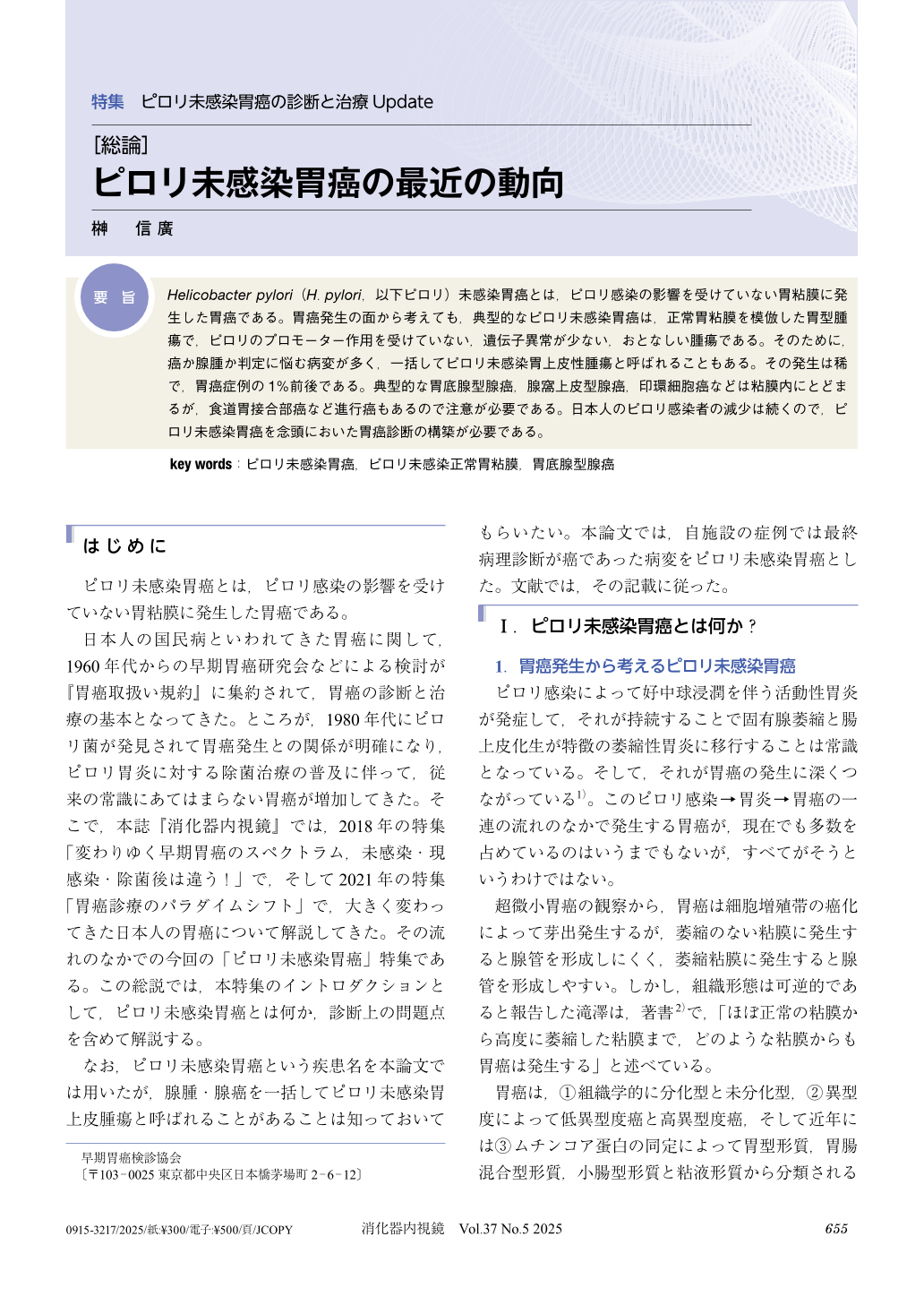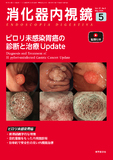Japanese
English
- 有料閲覧
- Abstract 文献概要
- 1ページ目 Look Inside
- 参考文献 Reference
要旨
Helicobacter pylori(H. pylori,以下ピロリ)未感染胃癌とは,ピロリ感染の影響を受けていない胃粘膜に発生した胃癌である。胃癌発生の面から考えても,典型的なピロリ未感染胃癌は,正常胃粘膜を模倣した胃型腫瘍で,ピロリのプロモーター作用を受けていない,遺伝子異常が少ない,おとなしい腫瘍である。そのために,癌か腺腫か判定に悩む病変が多く,一括してピロリ未感染胃上皮性腫瘍と呼ばれることもある。その発生は稀で,胃癌症例の1%前後である。典型的な胃底腺型腺癌,腺窩上皮型腺癌,印環細胞癌などは粘膜内にとどまるが,食道胃接合部癌など進行癌もあるので注意が必要である。日本人のピロリ感染者の減少は続くので,ピロリ未感染胃癌を念頭においた胃癌診断の構築が必要である。
Helicobacter pylori (H. pylori)-uninfected gastric cancer is gastric cancer that occurs in the gastric mucosa that is not affected by H. pylori infection. From the perspective of gastric cancer development, typical H. pylori-uninfected gastric cancers are gastric-type cancer that mimics normal gastric mucosa, are not affected by the promoter action of H. pylori, and are indolent tumors with few genetic abnormalities. Therefore, many lesions are difficult to determine whether they are cancer or adenoma, and are collectively called H. pylori-uninfected gastric epithelial tumors. They are rare, accounting for around 1% of total gastric cancer cases. Typical fundic gland-type adenocarcinoma, epithelial-type adenocarcinoma, and signet ring cell carcinoma remain within the mucosa, but caution is required as there are also advanced cancers such as esophagogastric junction cancer. As the number of Japanese people infected with H. pylori continues to decrease, it is necessary to develop gastric cancer diagnosis that keep H. pylori-uninfected gastric cancer in mind.

© tokyo-igakusha.co.jp. All right reserved.


